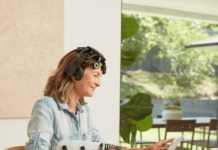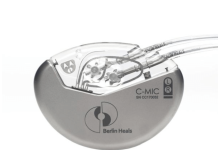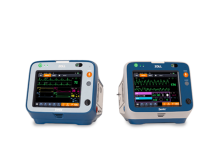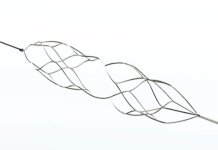Only a few months after Zoll Medical acquired neurostimulation device maker Respicardia, the investment is already paying off.
An updated version of Respicardia’s Remede system for central sleep apnea has received FDA approval—less than four years after the original version of the device earned the regulatory agency’s blessing—allowing Zoll to begin the immediate rollout of the Remede EL-X system in medical facilities across the U.S.
The central component of the system is a small neurostimulator that’s implanted in the upper chest in a minimally invasive operation. Once inserted, the device’s leads stimulate the chest’s phrenic nerve, regulating the brain signals to the diaphragm to help control breathing patterns.
The device also monitors breathing patterns throughout the night, issuing signals to the nerve as necessary to normalize breaths for patients with central sleep apnea, where errors in the nerve signals sent from the brain cause breathing to repeatedly start and stop during sleep—in contrast to the more common obstructive sleep apnea, which is caused by a physical blockage in the upper airway.
Hire with confidence!
A clinical study of the Remede system found that over the course of three years, patients saw their apnea symptoms drop by more than 90% and reported significant improvements in sleep, with nearly 60% fewer arousals from sleep and a 14% increase in deeper sleep.
Additionally, more than 80% of participants in the trial reported overall improvements in their quality of life thanks to the device.
The newly approved EL-X system updates the original design in a handful of ways. The new implant is about 25% smaller than the previous iteration and boasts a battery that lasts an average of 40% longer. Plus, while the first-generation device was equipped with two leads—one to monitor breathing and one to stimulate the phrenic nerve—the EL-X version has just one lead that simultaneously performs both functions.
The device also connects to an upgraded software platform that compiles all of the breathing pattern readings and neurostimulation activity conducted throughout the night into a diagnostic report. Care teams can then use those reports to monitor each patient’s response to the system, as well as to regularly tweak their treatment plans, said Todd Goblish, vice president of R&D at Zoll Respicardia.
The FDA approval comes just about four months after Zoll announced its acquisition of Respicardia. At the time, Zoll CEO Jon Rennert explained that Zoll would combine its own suite of cardiac and respiratory care products with the Remede system to corner the central sleep apnea treatment market.
Under the terms of the buyout, all of Respicardia’s employees joined Massachusetts-based Zoll’s workforce, while retaining Respicardia’s Minnesota headquarters. The financial terms of the deal weren’t disclosed.
The acquisition built on Zoll’s longtime investment in Respicardia, which included leading the latter’s $58.5 million financing in 2017.




